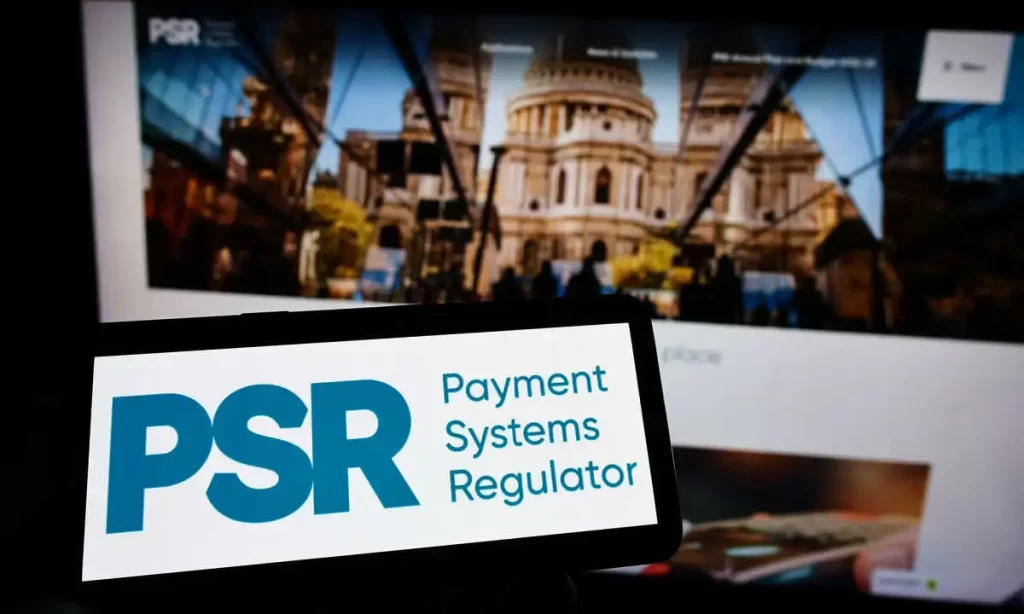Amidst the rapidly changing financial landscape, the UK’s Payment Systems Regulator (PSR) has unveiled an innovative proposal aimed at capping interchange fees imposed by payment giants Visa and Mastercard on transactions between the UK and the European single market.
This development takes on added significance in light of the growing influence of cryptocurrencies in the global payments arena, ushering in a new era of competition and disruption.
The PSR’s initiative to curb potential overpricing and establish fair practices in cross-border transactions aligns with the industry’s quest for transparency and fairness.
Focusing on Mastercard and Visa, who jointly manage a staggering 99% of debit and credit card payments in the UK, underscores their dominance in conventional financial transactions.
However, cryptocurrencies, offering decentralized, borderless transactions, present a compelling alternative that challenges the established order.
While the PSR’s proposal targets traditional payment giants initially, the crypto sphere emerges as a disruptor, providing a decentralized and potentially more cost-effective solution for cross-border payments.
As the regulator invites feedback on its proposals until the end of January, the crypto community observes these developments closely, recognizing the potential for traditional players to face increased competition from innovative and agile crypto solutions.
As the regulator contemplates imposing caps on traditional payment methods, the crypto market continues to gain traction, offering borderless, secure, and decentralized alternatives.
Visa and Mastercard’s argument that their interchange rates apply to less than 2% of UK card payments may come under scrutiny, especially as crypto adoption grows, challenging the existing narrative around transaction complexities and fraud risks.
The proposed fee cap acknowledges the necessity of regulatory intervention to foster a fairer payments environment.
However, the struggle for cryptocurrencies to gain substantial market share may arise from the lack of clear regulatory frameworks.
The ambiguous status of cryptocurrencies, varying from country to country, may create uncertainty among businesses and consumers, hindering widespread adoption.
Infrastructure and accessibility issues also pose challenges.
The entrenched infrastructure supporting traditional payment methods, along with their well-established networks, makes it difficult for cryptocurrencies to seamlessly penetrate the market.
Furthermore, accessibility issues, including the technical complexity of crypto transactions for the average user, act as barriers to widespread adoption.
Cryptocurrencies’ notorious price volatility and their perception as speculative assets rather than stable mediums of exchange contribute to their struggle for broader acceptance.
Traditional payment methods like Mastercard and Visa, with their long-standing reputations and consumer protections, instill a sense of trust that the crypto market has yet to fully achieve.
Bridging this knowledge gap and building trust are critical steps for crypto to gain significant market share.
Humans tend to resist change and stick to familiar systems.
The inertia embedded in the longstanding use of traditional payment methods, along with the “if it’s not broken, don’t fix it” mentality, poses a formidable challenge for cryptocurrencies seeking mass adoption.
In conclusion, the proposed fee caps have the potential to level the playing field and create a fairer competitive landscape. However, the challenges facing cryptocurrencies in disrupting the 99% stronghold of Mastercard and Visa are multifaceted.
Overcoming these hurdles will require concerted efforts from both regulators and the crypto community to address issues such as regulatory clarity, infrastructure development, volatility mitigation, and, crucially, building trust and understanding among users.
As the PSR advances its proposal, the crypto industry watches closely, anticipating potential shifts that may shape the future trajectory of financial transactions in the UK.
